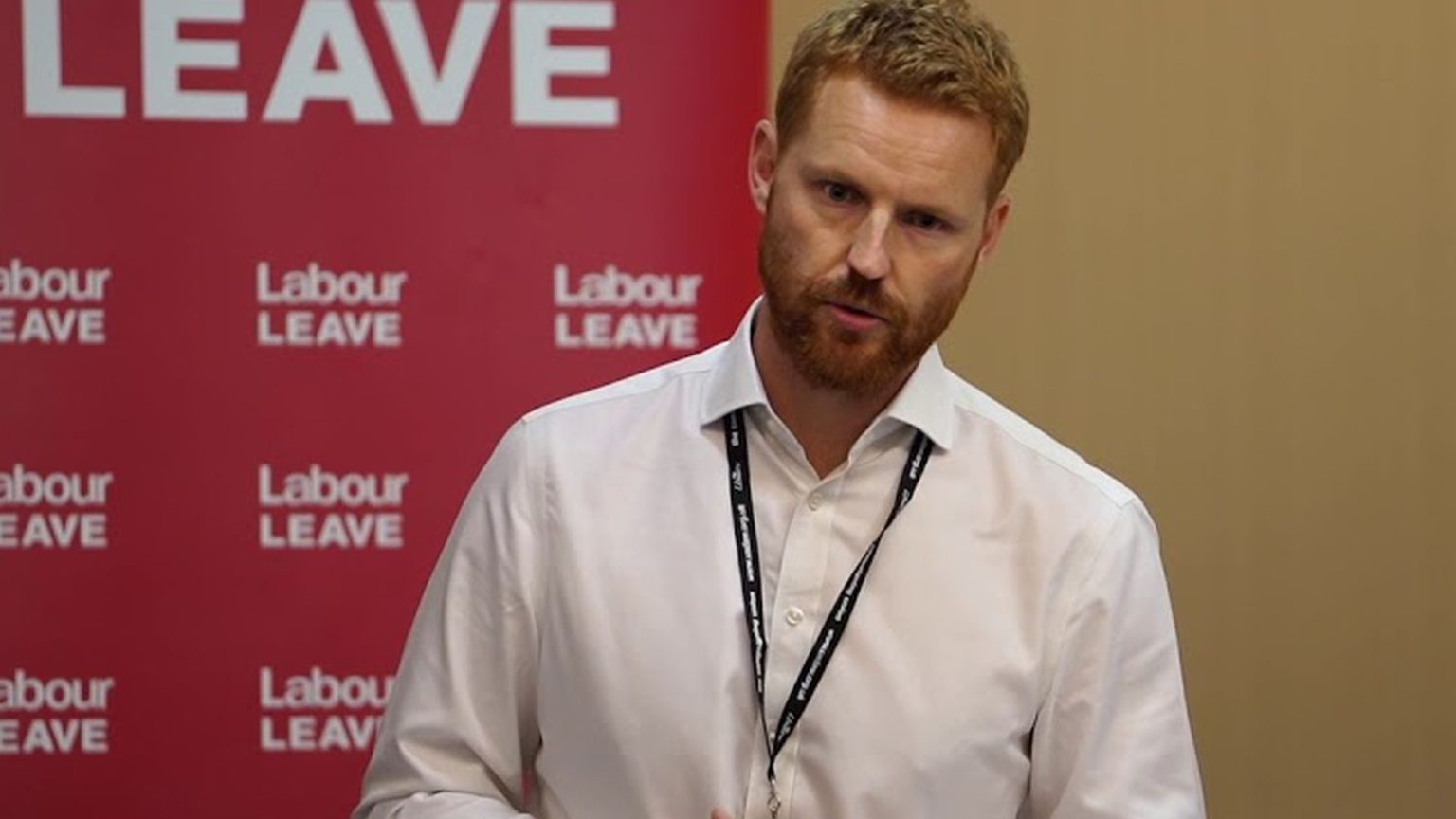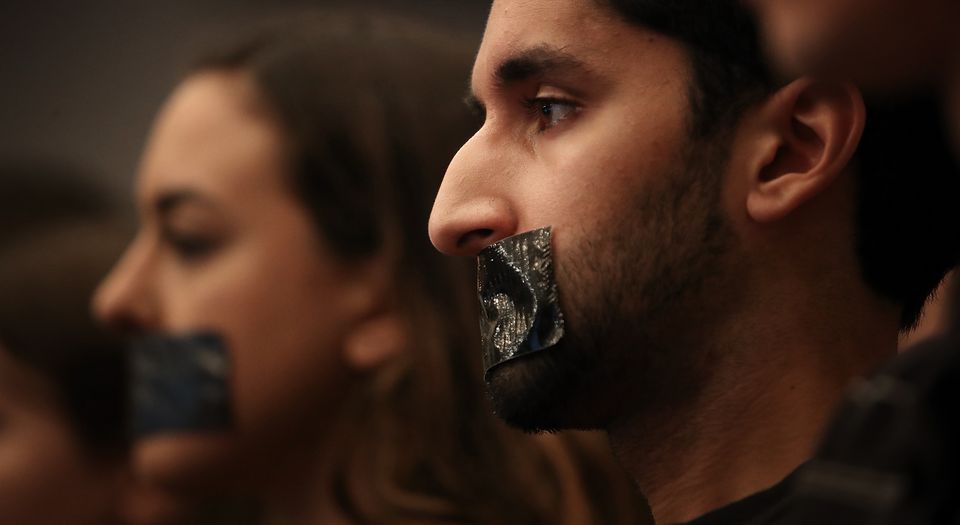Trade unions must stand up for workers’ freedom of speech
From Paul Embery to Selina Todd, supposedly controversial people have been abandoned by trade unions.

Many employers now have a wide array of codes of conduct and regulations that they can draw upon to discipline staff who express ‘offensive’ views. Some workers have benefitted greatly from the backing of their trade-union representatives when they have found themselves accused of saying things that have transgressed such workplace speech codes.
For example, it was heartening to read about the Australian BP refinery worker, Scott Tracey, who won his job back after being sacked for sharing a ‘highly offensive and inappropriate’ meme. The meme parodied BP’s pay negotiations; Tracey shared it in a closed Facebook group. He won his job back with the support of the Australian Workers Union. My own union, the University and College Union (UCU) in the UK, has defended members who have landed themselves in trouble for criticising university policies.
But more broadly, trade unions play an increasingly prominent role in demanding the policing of workers’ speech. And in doing so, they have strengthened the idea that your job may be dependent on you holding the right views, and expressing them in the right way. This is the opposite of what trade unions were established to do: protect people’s jobs and campaign for better wages and working conditions.
A prominent example of trade unions’ turn against their own members’ speech rights can be seen in the treatment of Paul Embery. Embery, in his own time and at his own expense, spoke at a rally in favour of upholding the Brexit referendum result. For this, he lost his post as an official in the Fire Brigades Union (FBU). Many prominent members of the FBU argue strongly for their political beliefs, but Embery’s views went against those of other higher-ups at a time of heightened political tension over the issue of Brexit. And so he was pushed out.
Many people have been vocal in supporting Embery, but I have heard far too little from the broader trade-union movement about his case. The line should be clear: we are here to protect jobs and livelihoods, not make them subject to holding certain political views.
When actor Laurence Fox recently argued on Question Time that it wasn’t racist to dislike Meghan Markle, and that dismissing white people’s views on the basis of their ‘privilege’ was racist, the actors’ union, Equity, posted a tweet calling on members to ‘unequivocally denounce him’ as a ‘disgrace to the industry’. (The tweets were later deleted, and blamed on two ‘rogue’ officials.)
One of the most worrying examples of the trend for unions to police their own members’ speech, and in the process to green-light employers’ policing of workers’ opinions, comes from my own union, UCU.
In 2018, UCU gave its vocal support to calls to sack a lecturer at the School of Oriental and African Studies when it was discovered that he was to stand for the right-wing Alternative für Deutschland (AfD) in Germany. I have no truck with the AfD and its divisive, reactionary politics. But for a union to demand that an employer sack a member of staff for holding the wrong opinions runs counter to the very purpose of trade unions.
More recently, there have been calls for the No Platforming of academics simply because they hold heretical views on transgenderism. Recently some lecturers signed a letter calling for historian Selina Todd to be No Platformed from a talk at the University of Kent over her gender-critical views. Last week, Todd was kicked off a panel at Ruskin College, reportedly at the behest of pro-trans activists. The response from UCU, Todd’s former union, has been to provide tacit support for the No Platforming of Todd, and other gender-critical feminists, by suggesting that their views are ‘transphobic’.
No Platforming, for an academic, is akin to being told that you cannot be allowed to do your job. Todd’s scheduled talk at Kent, like the short speech she was due to give at Ruskin, is not even on the topic of transgender rights. The implication is that she is not fit to write or teach at all due to her philosophical position on gender.
Other feminist academics with gender-critical views have been subjected to similar treatment, often with the tacit endorsement of their trade unions. Ironically, it is often left to the universities (the employers) to defend the free speech of these academics in the face of calls for them to be sacked, or at least gagged.
These are prominent cases. But people without a committee position like Embery, or without a public voice like Fox or Todd, are also being targeted. The ASDA worker who lost his job for sharing a Billy Connolly video deemed anti-Islamic is one example. As many union reps will know, a stupid email or an out-of-character rant can lead to disciplinary measures and even dismissal.
Worst of all, often the narratives around ‘offence’, and the formalised workplace codes designed to deal with it, are developed and endorsed by unions themselves. Through a range of vague codes around hate speech, bullying, harassment and microaggressions, union reps have helped to enhance the power of human-resources departments to discipline staff over their personal and political views.
The role of the union should be to protect jobs and to ensure that workplace regulations are not used to sack people unfairly. Unions should guard against the deployment of arbitrary power in the workplace. A commitment to free speech may not be the principal concern of trade unions, but we are weaker without it.
Jim Butcher is a UCU branch committee member and lecturer.
Picture by: YouTube.
To enquire about republishing spiked’s content, a right to reply or to request a correction, please contact the managing editor, Viv Regan.








Comments
Want to join the conversation?
Only spiked supporters and patrons, who donate regularly to us, can comment on our articles.